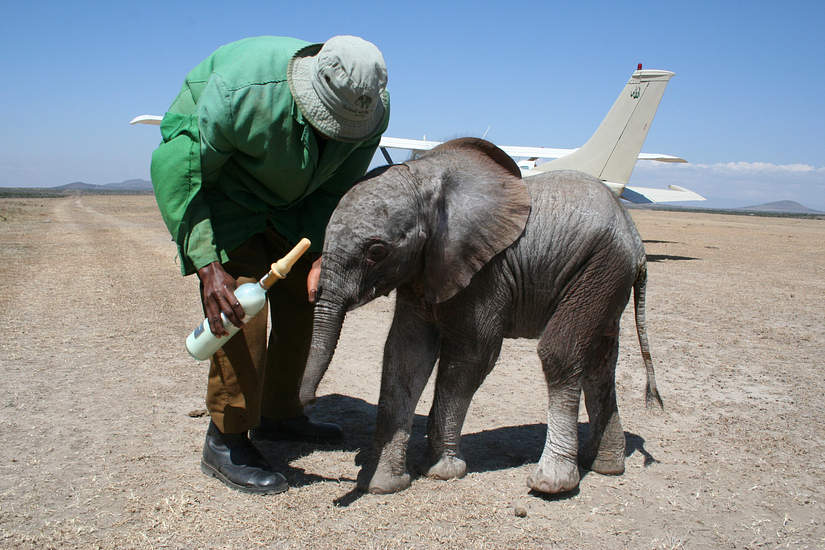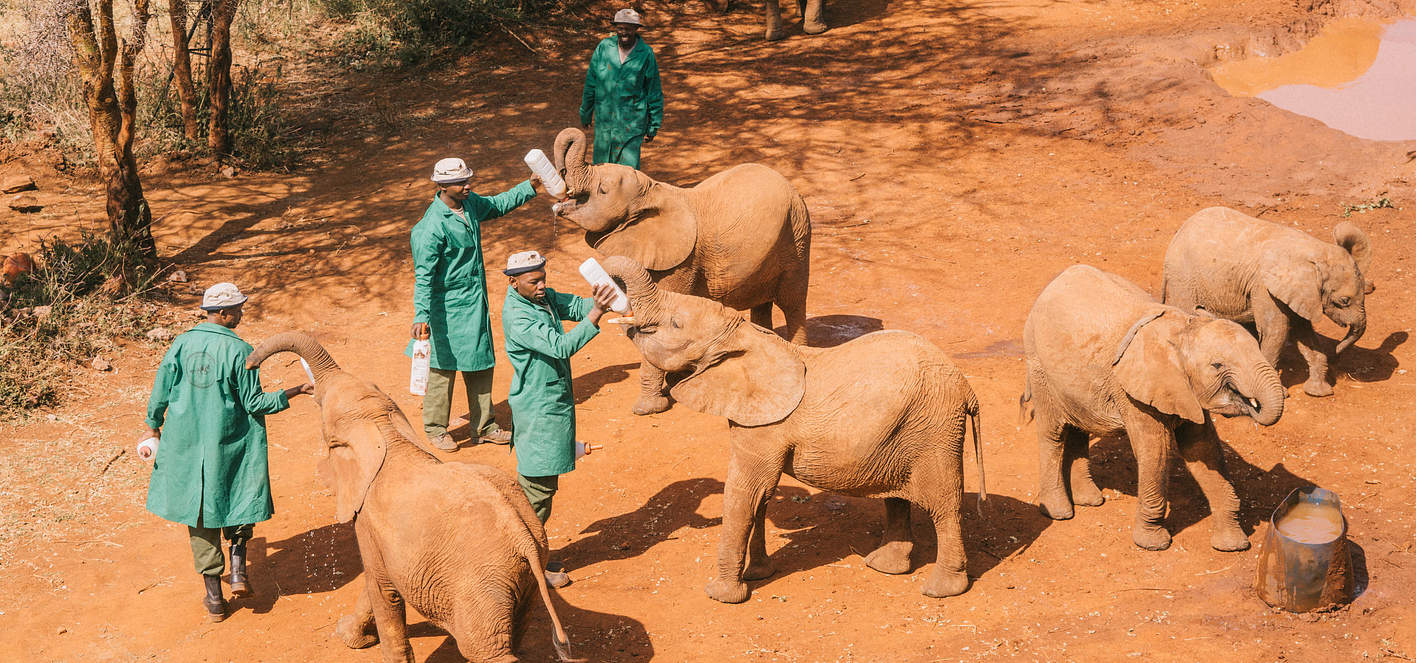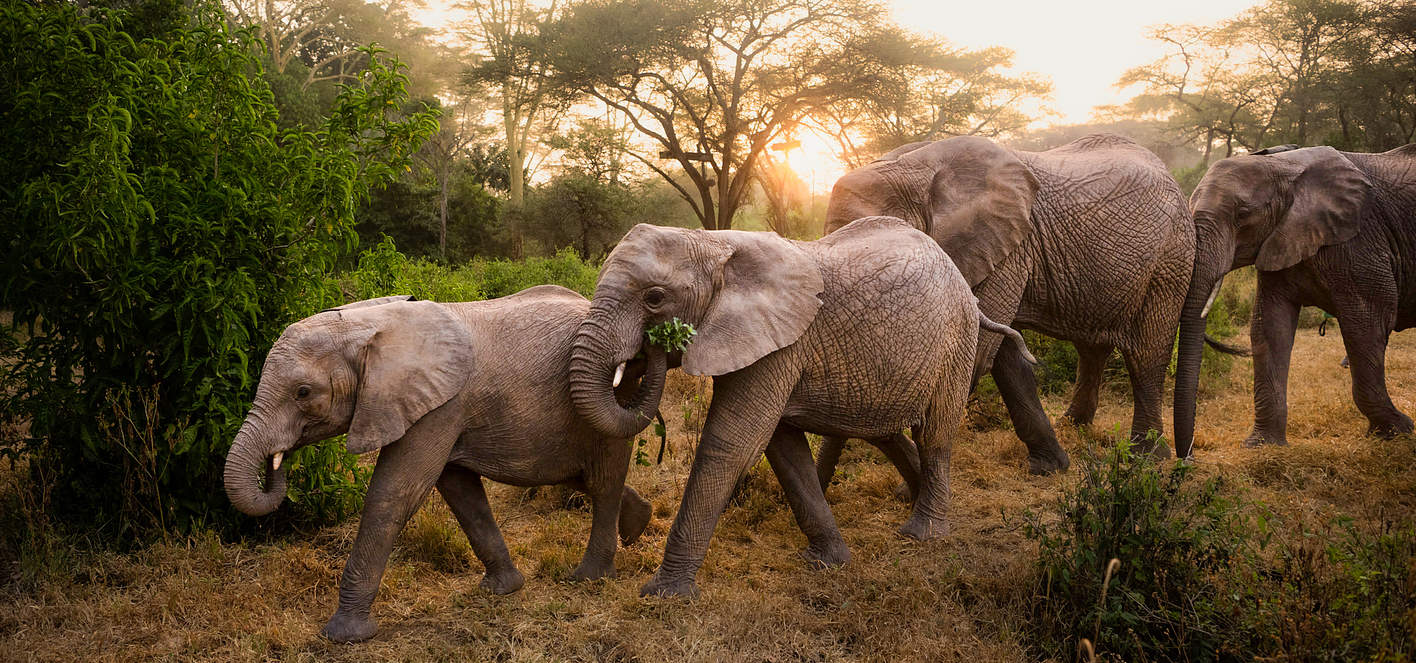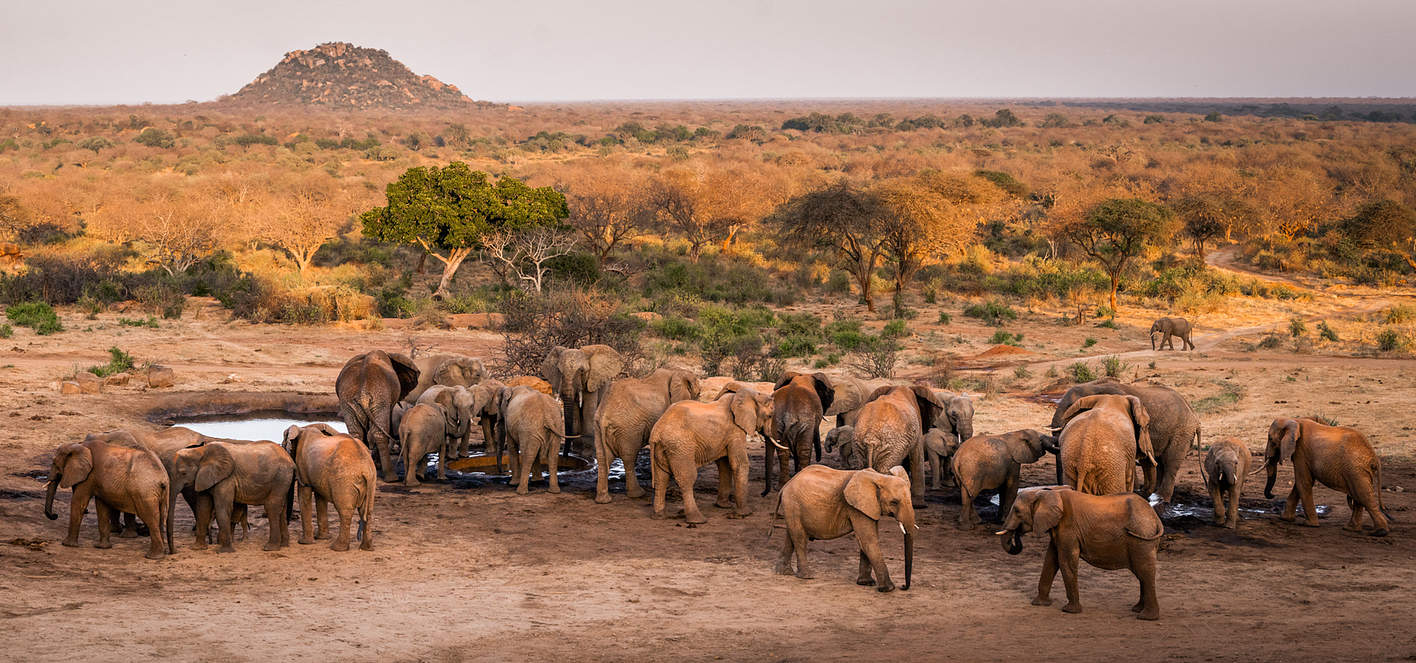
Raising an orphan
Please select one from below
The Nursery
The Nursery is the first, formative step in an orphaned elephant’s journey.
New rescues are brought directly to this sheltered environment, where they receive individualised, round-the-clock care from our talented team of Keepers.
Elephants are deeply emotional creatures. We find that an orphan’s psychological wounds are often far more challenging to heal than any physical trauma. New rescues typically experience a period of deep grieving as they mourn the loss of their mother and family. In parallel, many arrive in a state of dehydration, starvation, and/or physical injury, all which must be carefully navigated. Orphans under four months old frequently suffer at the onset of teething, when their first molars erupt, which triggers a rapid loss of condition.
SWT Keepers play a crucial role during this precarious stage, nurturing the orphans as their lost mothers would have done. Acting as parent figures, they offer unconditional love, emotional support, and daily structure in equal measure. Elephants are highly sensitive beings; some require lots of hands-on coddling, while others prefer to be left to their own devices. Keepers recognise each one as an individual and tailor their care accordingly.
At the Nursery, orphans sleep in individual stables and stockades. A Keeper bunks up with each infant, providing company and care through the night. These sleeping arrangements ensure that orphans get proper rest, while also receiving close oversight and support. Keepers room with orphans on a rotational basis, to prevent their charges from becoming overly attached to any one individual.
Neonates are bottle fed on-demand, while infants settle into a feeding routine every three hours. Calves have very fragile constitutions and can only tolerate certain milk compositions. We use a fortified formula developed by our founder, Daphne Sheldrick. The exact formula depends on an orphan’s age and special needs.
From sunup to sundown, the Nursery herd roams free in Nairobi National Park under the watchful eyes of their Keepers. ‘Bush school,’ as we call it, teaches the orphans to grow up as wild elephants. Each day brings about new lessons, be it learning the proper way to play with friends, discovering the best greens to eat, or perfecting their mud bathing techniques. Keepers ensure days are structured yet lighthearted, providing orphans with the mental stimulation and gentle discipline they need to flourish. Keepers also take care of every practical consideration: On chilly mornings, they swaddle the youngest and most fragile elephants in blankets; when it’s particularly sunny, they slather their ears in sunscreen; on rainy days, they shelter them with umbrellas.
Elephants lead socially complex, family-oriented lives. Keepers allow natural social dynamics to play out, stepping in only when the orphans need a referee or rule-enforcer. During this stage, mini matriarchs emerge as herd leaders. These older females take on a maternal role, nurturing and guiding their fellow orphans. This behaviour mirrors the matriarchal society of wild elephants, priming the orphans for their eventual reintegration.

Reintegration
Every orphan eventually outgrows the Nursery stage. We often find that those rescued at an older age are ready for their next step sooner, while those rescued as infants require more time in the Nursery’s nurturing environment.
Orphans always graduate alongside their friends. After several weeks of practise sessions, which acclimate them to the moving truck and process, they depart for one of our three Reintegration Units. Their destination is determined by field conditions, existing herd dynamics, and an orphan’s physical condition. Voi and Ithumba are based in Tsavo East National Park, while Umani Springs sits within the Kibwezi Forest. Although Umani Springs was created with vulnerable elephants in mind, its herd is a diverse group of physically compromised and able-bodied orphans. Each Reintegration Unit sits within a vast, protected wilderness, with a thriving population of wild elephants.
At Reintegration Units, orphans graduate to communal nighttime stockades, which protect them from predators while also helping them acclimatise to a wild sleeping environment. Much like at the Nursery, their days are spent at ‘bush school,’ exploring the surrounding wilderness from sunup to sundown. While Keepers continue to supervise the herd, they begin to take more of a backseat role. Instead, wild elephants and ex-orphans take centre stage. They act as mentors, helping the orphans hone their wild instincts and learn the ways of elephant society.
Orphans continue to be bottle-fed at Reintegration Units. As vegetation begins to make up the majority of their diet, satisfying their nutritional needs, they naturally begin to crave milk less. Each orphan is weaned on their own schedule, although we help things along by decreasing the quantity of milk feeds and watering down the formula.

Living Wild
Despite their unconventional upbringing, the call of the wild is strong, and each orphan hears it in their own time. However, reintegration is a unique process that unfolds at an individual’s chosen pace.
For most, it happens gradually, over the course of several years. The duration is often dictated by the age at which a calf was orphaned; those rescued very young take much longer, because they have little recollection of their elephant family and the wild.
At Reintegration Units, orphans are befriended by wild-living orphans. These older friends serve as invaluable mentors, slowly introducing them to a wild life. Orphans typically start by peeling off from the dependent herd during the day, returning to the stockades in their own time. These brief forays escalate into entire days and then nights away, until they become entirely independent. We often find that orphans go wild alongside friends who they have known since their Nursery days. They tend to join older ex-orphans, who eagerly embrace them into their herd.
And yet, even once an orphan has fully embraced their independence, they never forget the people who raised them. Most orphans continue to visit us throughout their wild lives. Some are familiar faces, while others return after months or even years away. Remarkably, nearly every wild-living orphan who has become a mother has chosen to introduce their baby to their human family — often immediately after giving birth!














